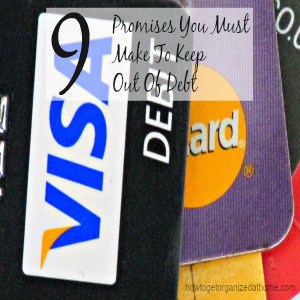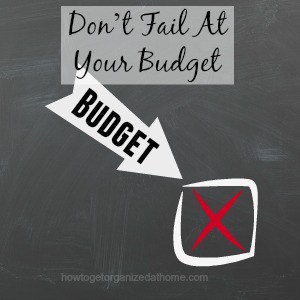Neglecting The Emergency Fund
The emergency fund is a vital area in every budget, even if you have debt. It is this fund that you will use to pay for those emergencies that could have previously meant getting credit, either for a loan or on your credit card.
Building your fund
There are many people that have little to no savings, and when something breaks and you need to fund a replacement, this can often mean finding credit to pay for the goods or service.
If you have managed to put aside money each week or month and aim to build it to pay off these unexpected bills, then you will, in the long term, be paying less for the emergency. You won’t need to pay off the interest as well as the money required to pay the debt. Having an emergency fund could save you thousands in interest payments alone.
It is going to be a slow process, and you will feel that you are making headway; and then, you need to use the money for an unexpected bill. This is fine; it is what it is therefore. Just remember to keep putting money away each month towards building up your emergency fund, again.
The amount that you need in an emergency account will depend on your personal circumstances. Some experts believe that you should be looking at having around 6 months living expenses in this account. I don’t think that this is always necessary; it should be enough to help you through an emergency or two. You should not try and use it to pay the bills that come into your home. You should budget for these separately. But if the need arises and your alternative is to put the bills on credit, then you should consider using this money because it will save you from paying the interest, if you were to borrow the money from elsewhere.
How to create an emergency fund
These can take time and energy to create; it is not going to happen overnight if you have no savings at all. You need to add into your budget an amount to save towards your emergency fund. It doesn’t have to be a large amount, but you do need to try and put money in the account every month. You might need to reduce some money that you have in another area, but make sure that you are paying all your bills. It is often possible to squeeze a few pounds out of your grocery budget a month. If this is all you can afford, then this is what you put into your emergency account. It doesn’t matter how much you can afford as long as you are putting some money away each week or month, depending on how you create your budget.
If and when you reach your goal
Sometimes it might seem that you will never reach your emergency fund goal amount, but there are times that you will reach the limit that you have set. The choice is yours if you increase the goal and continue to pay money into your emergency fund or if you open a new savings account to put the money into each month. There is the option of putting the extra each month that you are used to saving, towards a debt and pay them off quicker than you anticipated, saving you money on interest payments.



